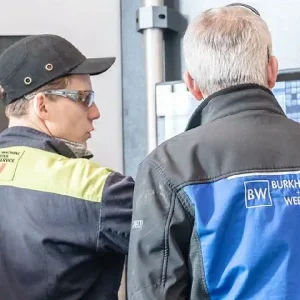
Copenhagen Malmö Port (CMP) has taken delivery of its first Ship-to-Shore (STS) crane from Konecranes, based in Finland, marking a significant development for the new container terminal at Ydre Nordhavn, Copenhagen.
The crane’s arrival follows a four-day journey and represents a pivotal step towards CMP’s goal of establishing a modern and efficient terminal in Northern Europe, in collaboration with By & Havn, the terminal’s developer.
CMP COO Povl Dolleris Røjkjær Ungar said: “It is with great excitement that we have received the first of our two new STS cranes. With significantly greater capacity than today and with new technologies such as semi-automatic operation and remote control, we will be able to offer our customers even better service in the future.
“The new cranes are fossil-free and also generate electricity when the containers are lowered. This also supports our ambition for more sustainable and efficient port operations.”
Konecranes Port Solutions STS product and project manager Toni Kuparinen said: “This is the 50th Konecranes STS delivered to container terminal customers in the Baltic region since 1999. Soon, this one will join the team.”
The second STS crane is expected to arrive in the coming weeks. Both cranes are set to be integral to the operations at the new terminal, which is slated to open in the autumn of 2025.
The terminal will enhance handling capacity and bolster CMP’s role as a key hub for international maritime transport.
By & Havn CEO Anne Skovbro said: “By & Havn is making significant investments in the green transition of the commercial port in Copenhagen these years.
“This includes ensuring shore power for ships docking at the quay and the construction of a new energy-efficient container terminal in Ydre Nordhavn, which will continue to allow goods to be delivered directly to the region’s residents without the need for long-distance land transport.
“The cranes being installed on the quay these weeks are not just a clear indication that the future container port will be located here. They also signal our commitment to efficient, fossil-free operations that contribute to making the commercial port better and greener.”






